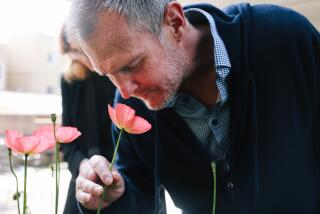Getting people into rehab can be hard. Try doing it during the coronavirus crisis
They hid the car keys in a safe and stashed away their son’s shoes. At night, they took turns sleeping on the living room couch so they could hear if he slipped out of his bedroom. They implemented a no-candle policy, knowing their son used the small flame to heat up crushed fentanyl on a piece of tin foil.
On March 17 — hours after the shelter-in-place order took effect in the Bay Area, where they live — Marie, 60, and Paul, 63, who asked to be identified by their middle names to protect their son’s privacy, discovered that, after 78 days sober, the 23-year-old had relapsed.
The timing felt impossible.
Helping a loved one get into a rehab center can be stressful and emotionally draining under the best circumstances. Trying to get them help during an outbreak of a devastating virus with no cure that has decimated the economy and created huge bureaucratic backlogs, is enough to push families to the edge.
Marie was stuck on hold with the insurance company, and dialing one residential rehab home after another. The facilities wanted assurance that her son wasn’t infected with the coronavirus. Marie knew that some sick healthcare workers couldn’t even get tests. How would her asymptomatic son possibly get one?
She anxiously considered the possibility that they might have to start the excruciating detox process at home. By now, this had become something of a familiar nightmare. Their son had already done two stints in rehab since his addiction began at 22. But this time, they knew, would be even harder.
They did several deep searches of the home, but their son had a hidden stash they missed and on March 21, he overdosed in the bathroom. Paramedics dressed in masks and gloves rushed him to the ER at Sequoia Hospital, where he got some IV fluids and was discharged hours later.
Just honk when you’re outside, the hospital staff instructed Marie, because nobody can come in because of the virus.
Back home, they caught him using fentanyl again and he told them that he was willing to go to treatment. But rehab facilities were in the early days of adjusting to the pandemic, and it was nearly impossible to find one nearby that would admit him immediately.
Finally, with help from the staff at Summit Estate Recovery Center — a six-bed facility in the hills of Saratoga where their son did two previous stints — they found another facility that would take him. But he was terrified of detoxing in an unfamiliar place.
“There’s a virus going on,” Marie pleaded with her son. “You get what you get.”
Summit helped the couple stage an intervention over Zoom, in which friends and some staff members, whom he knew from earlier stays, urged him to get help. An employee told him, through a laptop screen, that she’d been in his situation and he faced three outcomes: death, incarceration or sobriety.
“This is the end,” she told him. “This is it.”
“Fine,” he said, softly, “I’ll go.”
Jon Heller, admissions director at Summit, said that 90% of potential patients who call the facility now bring up the coronavirus and its impacts. They talk about getting furloughed, or their fear of getting furloughed. What will I do if my wife gets the virus, they ask? Is your facility still open? Is it safe? Is anyone there feeling sick?
The unprecedented combination of medical, psychological and financial anxieties, compounded by being cooped up in sometimes stressful family situations and not being able to attend in-person 12-step meetings, creates a confluence of stressors that can trigger relapses. Hard liquor sales have spiked 75% in the U.S., as Instagram has turned into a steady stream of virtual happy hour photos and TV hosts sip whiskey on air while recording from home.
“Our whole world is upside down,” Heller said. “It makes everything more intense.”
In recent days, Heller said, he has heard from a couple of former residents who relapsed during the pandemic, as well as from two former patients who work in Silicon Valley and called to say they were doing fine. He was happy to hear from them, but he couldn’t help but wonder why they were thinking about rehab right now.
And yet, for others, Heller said, these surreal, slowed-down times offer a chance for introspection and a bit of breathing room — an opportunity to finally give sobriety a real shot by showing up at rehab.
“I’ve never been able to take time off before,” one caller told Heller, who said it’s not uncommon for Summit to get patients who work at major tech firms.
During the pandemic, Heller said, it’s critical that people know that many treatment centers, including luxury facilities like theirs, as well as free, faith-based facilities, are open. To find help, he said, people should use the locator tool at www.samhsa.gov.
On a recent weekday, several Summit residents took turns explaining, by phone, why they had finally decided to get treatment.
A 48-year-old roofer from San Mateo said he was tired of running into the garage, chugging three beers, and hoping, in vain, that his wife, wouldn’t notice his red eyes. An 83-year-old woman, whose husband died a few weeks ago, arrived at Summit at the urging of her children, who’d found her so drunk off vodka that they thought she’d had another stroke.
And then there was the 32-year-old tech company employee, who said he now realizes that he’s been a functioning alcoholic for years, drinking nearly every day since he was 18.
He exercises a lot and had managed to keep things together at work, but in recent months, his binges, downing a fifth of Jameson or Bacardi in two days, had become more frequent. Then the pandemic hit and the last bit of structure in his life — going into the office every day — was now gone. He was working from home and trying his hardest to limit himself to a bottle of wine a night.
“I started to spiral faster and faster,” he said, so he emailed his boss, saying he needed some time off, and walked into Summit drunk on March 30.
He’s had time to confront a painful reality — that he uses alcohol to numb his anxieties — and spent hours with a therapist talking about potential triggers. He’s grateful, but he admits that he’s also deeply stressed about missing work, as news of layoffs fill the headlines.
“Right now is the time I should try to prove my worth,” he said, sighing.
Rehab with a difference
With bags already packed and loaded in the car, Marie drove her son to a facility in Hollister, praying at each red light that he wouldn’t change his mind and hop out. After several days at that facility, during which time he showed no symptoms, Summit agreed to accept him, and he returned for a third stint.
This time, it looked a little different.
When he arrived, he was met by a nurse, who took his temperature. Instead of coming to visit in person on Wednesdays, family members and friends now join in virtually.
One recent Wednesday night, Marie and Paul attended a virtual meeting. As other addicts and their families listened in, the couple, along with their son’s girlfriend, took turns talking about the trauma of witnessing the overdose.
Start your day right
Sign up for Essential California for news, features and recommendations from the L.A. Times and beyond in your inbox six days a week.
You may occasionally receive promotional content from the Los Angeles Times.
Their minds still flash back a month to the sound of the thud on the bathroom floor and to jimmying open the door with a butter knife. They can still see their son, well over 200 pounds, wedged between the toilet and the bathtub, his lips and fingertips turning blue.
Someone yelled for the Narcan, a nasal spray that reverses the effects of an overdose, which Paul had received along with opioids after his shoulder replacement surgery. They pumped the entire dose into their son’s nostrils and managed to move him to the floor. Paul started chest compressions and Marie did CPR.
In the terrifying days ahead, her mind raced with fears that she might have coronavirus. When her son was out scoring, he certainly hadn’t been washing his hands or staying six feet away from people. What if he’d been exposed, and now, she had been too?
During the virtual meeting, Paul — a grounding presence in the meetings, which he and Marie have attended faithfully since their son’s last stint in rehab — started to sob. It was a breakthrough moment for the entire group, said Annee Delaware, a psychiatric nurse, who leads the family groups.
She noticed that other men in the group started crying, too, and ever since then, the Wednesday meetings have been even more powerful and vulnerable than usual. In some ways, she said, family members seem more comfortable over Zoom.
“There’s no more, ‘Yeah, I planted flowers this week,’” she said. “It’s vulnerability and intimacy.”
The typical stay at Summit is about 28 days and, on a recent Monday, Marie got a call from a Summit counselor, saying their insurance company would likely stop paying for their son’s treatment the next day.
Marie had already gone through every folded sheet in the linen closet and popped open dental floss containers, searching for any of her son’s old hiding spots. Still, she said, they weren’t sure if they were ready for him to move back home.
The smallest sights and sounds can still set off flashbacks.
For Marie, it happened when she pulled out the tin foil to make a baked potato, and for Paul it came when his wife called from the other room, saying his lunch was ready.
“Don’t do that!” he said, explaining that she’d used the same, urgent tone as when she’d called to him after finding their son using in the garage.
They were looking into a sober-living home, Marie said, but she wasn’t sure how much it would cost and whether they could afford it.
She let out a long sigh. It’d been a rough morning.
She’d just learned that there was an outbreak of COVID-19 at the nursing home where her father lives in Redwood City. He has severe Alzheimer’s and it simply wasn’t feasible to move him home with her or with any of her siblings. He’d constantly touch his face and want to wander, and it would put them all at risk.
So now, she said, she was trying to mentally prepare for the possibility that her father would die alone.
“When that hits you…,” she said, trailing off.
Moments later, her mind had slipped back to her son.
More to Read
Start your day right
Sign up for Essential California for news, features and recommendations from the L.A. Times and beyond in your inbox six days a week.
You may occasionally receive promotional content from the Los Angeles Times.







